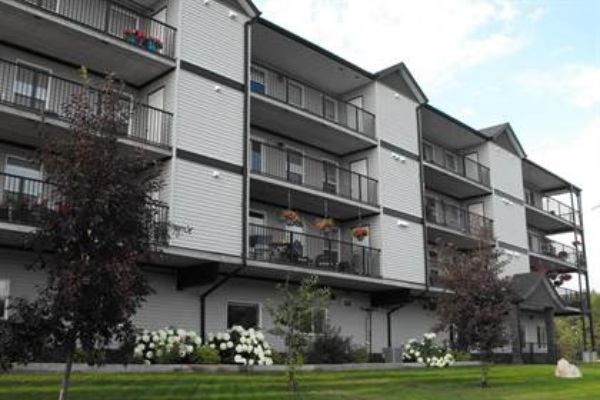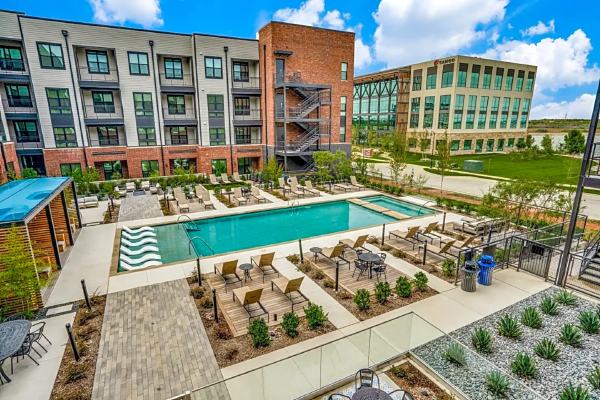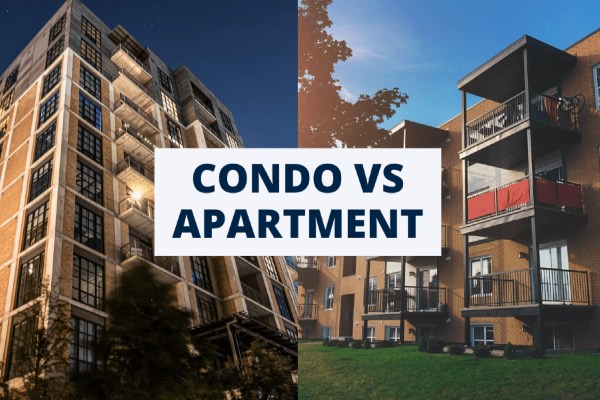In the city area, people have to choose between living in a condominium (condo) or an apartment. It is not just about finding a place to live. It is a big decision that affects how you live, how you invest your money, and how you feel part of a community. Condos and Apartments might seem interchangeable but each has its own unique advantages and considerations. That’s why, when people are looking for a place to live, it is important to know the big differences between condos and apartments.
Today, we will discuss the difference between condos and apartments which include the rules about owning them, who take care of repairs, whether they are a good investment for the future, and so on.
Condo Vs. Apartment: Unveiling the Ultimate Urban Living Guide
Deciding if you should rent or buy a home is a major decision that can affect your living life for a long time. When you buy a condo, you are paying a loan every month until you own the unit. On the other hand, renting an apartment means paying monthly rent to the owner. Condos are often the first choice for people buying their first home. Let’s break down what makes each one special and find out which option suits you best.
Property Ownership Structures: Condo vs. Apartment
Condos and apartments have different ways of owning properties. In condos, owners have individual ownership of their units and collectively own common areas. However, apartment renters do not have ownership of their units. Instead, they pay rent to live there, like paying to borrow the space from the owner or company.
Condos: In a condo, each person who lives in the building or complex owns the unit entirely. This means that condo owners have full legal ownership of their units and can sell, rent, or modify them. Condo owners gradually increase their ownership stake over time paying their mortgage loan, utilities, and property taxes.

Apartments: In apartments, one person or company such as a corporation, or real estate investment trust (REIT) owns the whole building. If you live in an apartment, you don’t own it. Instead, you must pay rent to the owner or the company that owns the building. When you rent an apartment, you are not gaining ownership like you would with a condo.
Legal Framework: Understanding the Contrast
When choosing between an apartment and a condo, it is important to understand the legal distinctions for prospective residents in navigating their housing choices and obligations. Both places usually have rules about what you can do in shared spaces, what pets are allowed, and how you can decorate outside.
Condos: Although owners hold complete ownership of condos, other parts have joint ownership like common areas. There are certain rules and regulations set by the homeowners’ association (HOA) or condo association for shared spaces like hallways or gyms. Condo owners can usually decorate their homes inside however they want. But they still have to follow the association’s rules, which might limit things like landscaping or having certain pets.
Apartments: The landlord has the authority to set the rules for living in the apartment which you have to follow. These rules can be different depending on where you live, which are usually written in your lease. Landlords make rules about things such as how you decorate inside and outside, whether you can have pets, how much noise you can make, even if you can burn candles, and more.
Maintenance Obligations: Who is Responsible?
In condos, owners take care of their units and help with shared areas by paying HOA fees. In apartments, the landlord or property management company is in charge of fixing anything that breaks in the whole building.
Condos: In condos, owners usually have to take care of fixing things inside their units like fixing appliances or repairing walls. However, the condo association or HOA looks after common areas like hallways or gyms. Somehow you are also contributing to the upkeep of common areas through monthly fees paid to the homeowners’ association (HOA) or condo association.
Apartments: When you are renting, your landlord takes care of the whole property, inside and out. For example, if something big breaks, like an appliance or a leak, it’s usually the landlord’s job to fix it and pay for the repairs. However, make sure to read your lease to see what you have to do for maintenance.
Amenities and Facilities: Comparing Comforts

When you are comparing condos and apartments, it is essential to consider the amenities and facilities that meet your lifestyle needs and preferences. Condos and apartments usually have similar comforts, but they might have some differences.
Condos: Condos facilities with amenities like gyms, pools, community rooms, and outdoor spaces. These features can enhance your living experience and provide opportunities for relaxation and socializing. But the amenities you get can be different depending on how big the building is, where it is located, and how it is managed.
Apartments: Just like condos, apartments may offer amenities such as gyms, pools, community rooms, and outdoor spaces to make living there more enjoyable. However, they might not have as many facilities available as a condo complex.
Investment Potential: Who is Better?
When thinking about investing in condos or apartments, there are a few things to consider, like location, market conditions, rental demand, financing options, and individual investor preference.
Condos: Condos can be a great choice for people buying their first home or downsizing because they are cheaper. As a condo owner, you will slowly build up ownership in your home over time. Investors often like condos because they can own individual units that might become more valuable over time. They can also make money by renting them out. Additionally, condos often have things that renters like, so owners can earn more in rent over time.
Apartments: Apartments are good for people who don’t want to deal with owning a home or don’t plan to stay in one place for long. They can also be a good investment because they usually cost less upfront and can bring in steady rental income. Even though apartment investors don’t own single units, they can still make money by owning many units in one building or complex.
Community Dynamics: Condo Living vs. Apartment Living

The vibe of communities in condos and apartments can be different depending on individual preferences, lifestyle choices, and the specific characteristics of each residential community.
Condos: Condo neighborhoods might have a strong sense of community, where people join in HOA meetings, events, and activities together. However, how close-knit the community feels can change depending on how often people move in and out and how well the HOA is run.
Apartments: If you rent a place, you might be close to neighbors and lots of people passing by, which might cause noise or privacy problems. Apartments often have different people moving in and out, so it’s not as steady. Some apartments might organize events to bring people together, but how much people get involved can change.
Frequently Asked Questions
1. What does owning a condo mean?
When you buy a condo, you are paying a loan every month until you own the unit. This means that condo owners have full legal ownership of their units and can sell, rent, or modify them. Condo owners gradually increase their ownership stake over time paying their mortgage loan, utilities, and property taxes.
2. How about renting an apartment?
Renting an apartment means paying monthly rent to the owner. In apartments, one person or company such as a corporation, or real estate investment trust (REIT) owns the whole building. If you live in an apartment, you don’t own it. Instead, you must pay rent to the owner or the company that owns the building.
3. Can I expect amenities in both?
Yes, both facilities with amenities like gyms, pools, community rooms, and outdoor spaces. These features can enhance your living experience and provide opportunities for relaxation and socializing. But the amenities you get can be different depending on how big the building is, where it is located, and how it is managed.
Also read, What Is Italianate Architecture? History, Characteristics, Style
